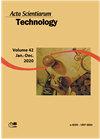基于文化维度的国家创新能力预测:全球创新指数分析
IF 0.6
4区 综合性期刊
Q3 MULTIDISCIPLINARY SCIENCES
引用次数: 0
摘要
本文试图检验Hofstede的文化维度如何作为国家创新的预测变量。为了阐明民族文化如何影响国家的创新能力,我们建立了回归模型,并进行了比较。我们将使用多元线性回归方法进行分析,以各国在GII中获得的分数作为因变量,文化维度的值作为解释变量。个人主义、长期导向和放纵维度对国家创新有正向影响。然而,不确定性规避与创新之间存在负相关关系。这些联系的可能原因可能包括更多的专业关注,对新思想的开放和对创新的更大抵制。由于每个国家的现实是不同的,无论是由于其文化、历史和社会方面,还是由于其地理位置和自然资源的可用性,都不可能简单地将政策从一种情况引入另一种情况。鉴于这些因素,有必要分析基础设施和文化差异如何影响国家的创新绩效。本研究旨在通过提出与创新最相关的文化维度的定量和定性结果,扩展关于不同形式的文化如何协助国家创新过程的文献。本文章由计算机程序翻译,如有差异,请以英文原文为准。
Prediction of the innovative capacity of countries based on their cultural dimensions: an analysis of the global innovation index
This article seeks to examine how Hofstede's cultural dimensions act as predictive variables for country innovation. In order to clarify how national culture influence countries' capacity for innovation, regression models were developed, and comparisons were made. We will use the multivariate linear regression method for the analysis, with the scores obtained by countries in the GII as the dependent variable and the values of cultural dimensions as explanatory variables. Individualism, long-term orientation and indulgence dimensions have a positive influence on countries' innovation. However, there is a negative relationship between uncertainty to avoidance and innovation. Possible reasons for these associations may include greater professional focus, openness to new ideas and greater resistance to innovation. Since the reality of each country is different, whether due to its culture, history and social aspects or due to its geographical location and availability of natural resources, it is not possible to simply import policies from one context to another. Given these factors, an analysis is needed on how infrastructure and cultural difference can influence the innovative performance of countries. This study aims to expand the literature on how culture in its different forms assists in the innovation process of countries by presenting quantitative and qualitative results on which cultural dimensions are most relevant to innovation.
求助全文
通过发布文献求助,成功后即可免费获取论文全文。
去求助
来源期刊

Acta Scientiarum-technology
综合性期刊-综合性期刊
CiteScore
1.40
自引率
12.50%
发文量
60
审稿时长
6-12 weeks
期刊介绍:
The journal publishes original articles in all areas of Technology, including: Engineerings, Physics, Chemistry, Mathematics, Statistics, Geosciences and Computation Sciences.
To establish the public inscription of knowledge and its preservation; To publish results of research comprising ideas and new scientific suggestions; To publicize worldwide information and knowledge produced by the scientific community; To speech the process of scientific communication in Technology.
 求助内容:
求助内容: 应助结果提醒方式:
应助结果提醒方式:


